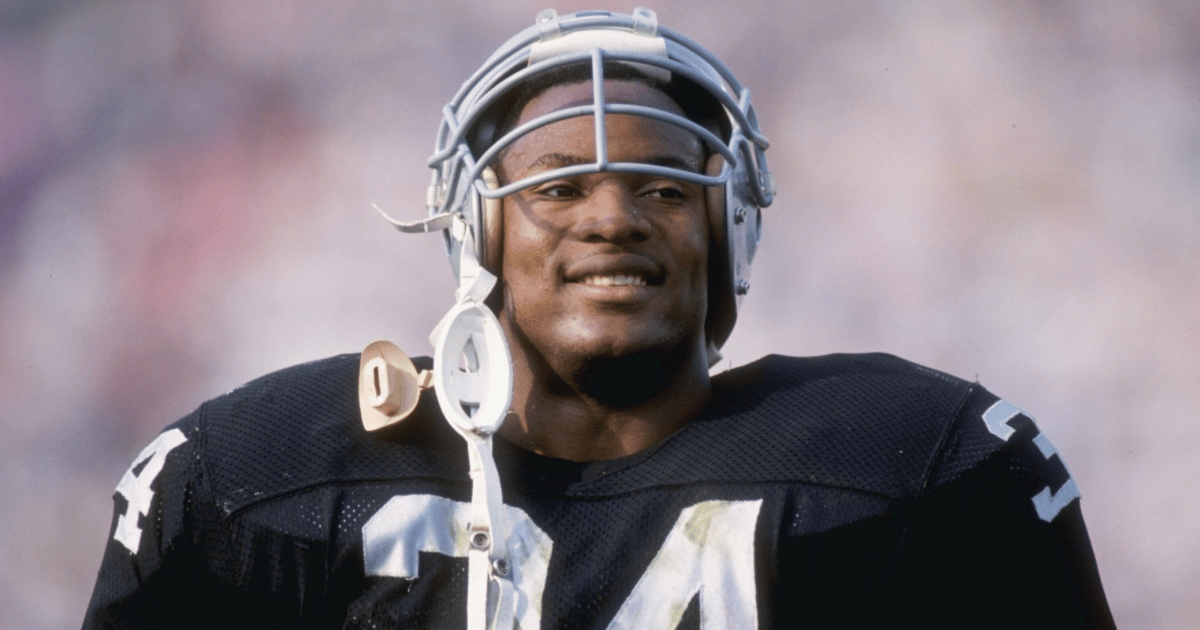Back in his heyday as a two-sports superstar, Bo Jackson (he played professional baseball and football, making all-star teams in both) was part of a popular ad campaign for Nike called “Bo Knows.”
It was a simple yet very effective nod toward his amazing versatility as Jackson is still today considered one of the greatest athletes in sports history. And though he’s nearing 60 and a commentator today, Jackson still knows things, like how he’d fare in the modern NFL. According to him, he’d kick ass.
https://twitter.com/barstoolsports/status/1320775477083230211
Jackson’s claim was wrapped up in a perhaps typical retired athlete’s complaints about how the kids in their sport today are too soft.
Jackson guested on Deion Sanders‘s podcast and the two got into how he’d fare now. According to him, really well. Jackson believes he’d average 350 to 400 yards per game today.
Nobody wraps up and tackles no more…With me being a ball carrier, my coach taught us, number one, he said, “I know you can run, but I’m gonna teach you how to carry that football.” He said, “that football is like your newborn baby, don’t ever put it on the ground. And keep it away from the enemy.”
It’s like this — and I watch technique — I don’t see nobody hitting or wrapping up. Everybody’s running into each other and trying to use their shoulder pads to knock the ball carrier down. And I’m like, if I played during this era, man, I’d be averaging 350-400 yards a game … because nobody wraps up anymore. They run into each other with their pads.
These kids and their pads.
Jackson played in the NFL for 38 games, racking up 3,134 yards on offense. He scored 18 touchdowns. His complaint about “pads” is rooted in playing at a different time, when no one really knew about CTE, or chronic traumatic encephalopathy—a disorder too many pro athletes are found to suffer after careers taking hard hits from large men.
One legacy of CTE might well be players choosing to rely more on their pads. In order to avoid, you know, actual brain damage. Young athletes are realizing they need to have a life beyond the sport commenting—like Bo Jackson—on how their generation played a better game.

